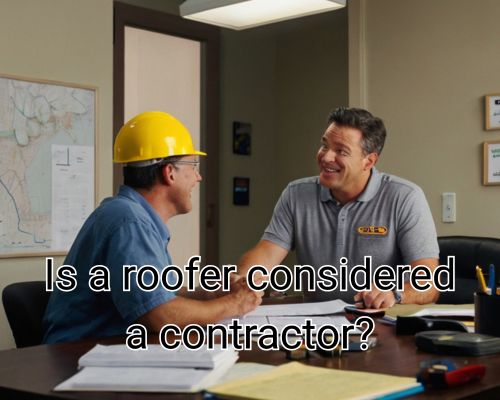How Do Most People Pay for a Roof? A Guide for New Jersey Homeowners
Replacing a roof is one of the most significant financial decisions a homeowner in New Jersey will face. With the average roof replacement in the Garden State ranging from $8,000 to $25,000+, depending on materials and square footage, it’s no wonder that many homeowners are asking: How do most people pay for a roof? The answer isn’t one-size-fits-all—but this article explores the most common financing methods, local programs, and money-saving tips to help you make the most cost-effective decision.

Why Roofing Costs Are Rising in New Jersey
Before diving into payment strategies, it’s worth understanding why roof replacement costs have been climbing across the state. Several factors contribute to this:
- Labor Shortages: Skilled roofing contractors like CJ Commercial Roofing NJ in New Jersey are in high demand.
- Material Inflation: Asphalt shingles, metal roofing, and even cedar shake have seen price hikes due to supply chain disruptions.
- Stringent Codes: Local building codes, especially in coastal towns like Atlantic City or Toms River, require specific wind and storm resistance standards.
Given these variables, it’s crucial for NJ homeowners to plan how they’ll pay for a new roof in advance.
1. Cash Payments: Paying Out-of-Pocket
Primary method used by homeowners with savings.
Many New Jersey homeowners opt to pay in full using cash or savings, especially if they’ve budgeted for major home renovations. While this method avoids interest payments or credit checks, it’s not always feasible—especially if your roof is damaged unexpectedly by a nor’easter or hurricane.
💡 Tip: Contractors often provide a cash discount of 2–5% if you pay upfront. Be sure to ask.
2. Homeowners Insurance
Best option when roof damage is storm-related.
If your roof has been damaged by a covered event (e.g., hail, wind, falling debris), homeowners insurance may cover part or all of the replacement. In New Jersey, this is particularly relevant given the frequency of coastal storms and winter weather events.
Key Considerations:
- File a claim promptly.
- Document the damage with photos and contractor evaluations.
- Understand the difference between Actual Cash Value (ACV) and Replacement Cost Value (RCV) policies.
💬 Local insight: In flood-prone towns like Hoboken or Bayonne, insurance adjusters may be more stringent, so detailed documentation is essential.
3. Roof Financing Through the Contractor
Popular, fast, and flexible for homeowners lacking large cash reserves.
Many roofing companies across New Jersey, such as those in Cherry Hill, Edison, or Paramus, partner with lenders to offer roof financing plans. These can range from 6-month 0% interest promos to extended terms (up to 15 years) with monthly payments.
Pros:
- Quick approval (sometimes same-day).
- No collateral required.
- Flexible term options.
Cons:
- Higher APRs if not paid off during the promotional period.
- May require a credit score check (typical minimum: 600–650).
🔍 LSI Keywords: roof financing New Jersey, roofing loans, no money down roof installation
4. Home Equity Loans or HELOCs
Most common strategy among homeowners with significant equity.
A Home Equity Loan or Home Equity Line of Credit (HELOC) uses the value of your home as collateral. These are popular in suburban areas like Princeton, Morristown, and Red Bank where property values are relatively high.
Features:
- Lower interest rates than personal loans.
- Potential tax-deductible interest (consult your CPA).
- Fixed or revolving credit options.
💬 Local insight: New Jersey’s high home values, especially in Bergen and Somerset counties, make HELOCs a favorable option for many homeowners.
5. Government-Backed Loan Programs
Often overlooked, but highly beneficial for low-to-moderate income households.
There are several state and federal programs available in New Jersey that assist homeowners with roof replacement costs:
- NJ Weatherization Assistance Program (WAP): Helps income-eligible households with energy-efficient improvements—including roofing.
- FHA Title I Home Improvement Loans: Federally insured loans for home renovations, including roofs, with less stringent requirements.
- USDA Single Family Housing Repair Loans & Grants: Available in rural areas like Sussex County or Cumberland County for eligible homeowners.
📍 LSI Keywords: roof grants NJ, low-income roof replacement programs, government roof assistance
6. Credit Cards: The Risky Route
Used for emergency repairs but not advisable for full replacements.
Some homeowners turn to credit cards for short-term roof fixes or to cover a down payment. While this may offer a quick solution, it comes with sky-high interest rates—often above 20% APR.
🧠 Nova’s wisdom: “Swipe smart—use cards only if you plan to pay off the balance within a month or two.”
7. Roof Leasing & Subscription Models (Emerging Trend)
Still niche, but growing in popularity among tech-forward homeowners.
Some NJ-based roofing companies now offer subscription-based roofing, especially for solar-integrated or metal systems. These plans spread costs over years and bundle in regular inspections, gutter cleaning, and minor repairs.
Think of it as Roofing-as-a-Service (RaaS). While still rare in towns like Montclair or Freehold, it’s becoming more common in green-conscious suburbs.
8. Community Development Block Grants (CDBG)
Municipalities like Newark, Camden, and Paterson participate in HUD’s Community Development Block Grant programs. Funds can be used for essential home repairs, including roof replacements, particularly for seniors or disabled residents.
🏡 Reach out to your local NJ Department of Community Affairs (DCA) for application windows and eligibility requirements.
Summary Table: Most Common Roof Payment Methods in NJ
| Payment Method | Popularity | Ideal For | Notes |
|---|---|---|---|
| Cash | ★★★★☆ | Homeowners with savings | Avoids interest, may qualify for discounts |
| Insurance | ★★★★★ | Damage from storms or falling trees | Claim fast, understand ACV vs. RCV |
| Contractor Financing | ★★★★☆ | Middle-income homeowners | Watch APR, check for 0% promos |
| HELOC / Home Equity Loans | ★★★★☆ | High equity homeowners | Long-term option, lower interest |
| Government Loans/Grants | ★★★☆☆ | Low-income or rural homeowners | Application-based, eligibility required |
| Credit Cards | ★★☆☆☆ | Emergency-only | High interest unless paid quickly |
| Roof Leasing / Subscriptions | ★★☆☆☆ | Tech-savvy or solar-focused homeowners | Still a niche option, gaining traction |
Final Thoughts: Choose What Aligns with Your Financial Reality
When it comes to the question, “How do most people pay for a roof?”, New Jersey homeowners turn to a blend of insurance, contractor financing, and home equity options. The “best” way depends on your financial situation, creditworthiness, home equity, and how fast you need the work done.
🚨 Don’t wait until a leak turns into structural damage. Talk to a licensed New Jersey roofing contractor—especially those certified like CJ Commercial Roofing NJ—for estimates and payment plan options.
And always read the fine print. Because a roof over your head is a necessity—but how you pay for it can either protect your finances or drain them.

